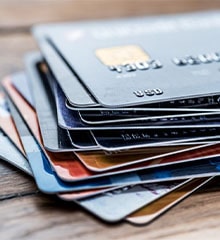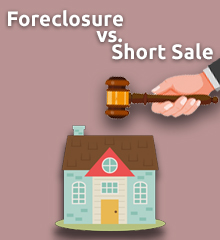Everything You Need To Know About Means Test in Florida
Updated on 19 May 2025
In Florida, there are two chapters of consumer bankruptcy that an individual normally files: 7 and 13. Chapter 7 will quickly and easily wipe out your unsecured debts such as credit cards and personal loans. Chapter 13 is a debt repayment plan where your debt will be reduced and reorganized into a 3-to-5 year payment plan. This type of bankruptcy is meant for people who cannot pay all their debts despite taking home a regular paycheck.
Because Chapter 7 offers more substantive debt reduction, the law imposes financial limits on who can qualify for this type of relief. The evaluation that determines whether you are eligible is known as the "means test.” Factors that impact the means test calculation include household size, household income, and certain household expenses.
How Do You Qualify for Means Test?
The means test analyzes whether or not you have the financial resources to repay your debt without bankruptcy through an income examination. In Florida, you can qualify in one of two ways.
First, if your current monthly earnings are lower than the median income for a Florida household of your size, you pass without any additional steps. You are automatically qualified to file under Chapter 7.
However, suppose your household earns more than the Florida median. In that case, the means test will then evaluate your disposable income, which is the amount of money you have left each month after paying certain allowed expenses, such as housing, utilities, taxes, and insurance. If your disposable income exceeds the limit, you fail and cannot discharge your debt through Chapter 7 bankruptcy.
Is Means Test Gross or Net?
The means test is based on your gross income for the 6 months preceding your filing date. You’ll divide your total earnings for this period by 6, then multiply by 12 to get your estimated annual income.
If this number is below the Florida median annual income, you’ll pass and qualify to file. If it’s above the median, you’ll deduct your allowed expenses from your gross earnings to determine you pass the second step.
What Happens if You Fail the Means Test?
If you fail, you won’t be permitted to obtain debt relief through Chapter 7. However, you will still be able to file for Chapter 13, as there are no earning limits on this type of bankruptcy. For this reason, it is sometimes referred to as the “wage earners’ bankruptcy.”
Final Thoughts
Whether or not you can pass the means test, there is a type of bankruptcy that is right for your family. At DebtStoppers, our qualified Florida attorneys have years of experience helping struggling families find the best way to eliminate their debt problems.
Call or text DebtStoppers Florida today at 786-420-4545 to schedule a free initial consultation to discuss your options with a member of our skilled legal team. We’ll review your financial situation and help you determine the most suitable course of action to address your money troubles.
Recovering Your Financial Stability after Bankruptcy in Florida
Filing for bankruptcy can provide much-needed relief from overwhelming debt, but it's essential to understand the steps you can take to recover your financial stability once your bankruptcy is complete. By following a few key strategies, you can rebuild your credit and ensure a brighter financial future.
Create a Budget and Stick to It
Creating a realistic budget is crucial for managing your finances after bankruptcy. Track your income and expenses, and make sure you're living within your means. Be disciplined in sticking to your budget and adjust it as needed to accommodate changes in your financial situation.
Pay Your Bills on Time
Paying your bills on time is a significant factor in rebuilding your credit score. Make it a priority to pay all your bills, including rent, utilities, and any remaining debts, on time every month. Setting up automatic payments can help ensure you never miss a due date.
Establish an Emergency Fund
Having an emergency fund can help you avoid falling back into debt when unexpected expenses arise. Aim to save at least three to six months' worth of living expenses in a separate savings account. This will provide a financial cushion in case of job loss, medical emergencies, or other unforeseen expenses.
Use Credit Responsibly
Responsible use of credit is essential for rebuilding your credit score after bankruptcy. Start by obtaining a secured credit card, which requires a deposit that serves as your credit limit. Use the card for small purchases and pay off the balance in full each month. This demonstrates responsible credit management and will help improve your credit score over time.
Monitor Your Credit Report
Regularly monitoring your credit report is important to ensure accuracy and track your progress in rebuilding your credit. Obtain a free copy of your credit report from each of the three major credit bureaus annually and review it for any errors or discrepancies. If you find any inaccuracies, dispute them with the credit bureaus promptly.
Consider Professional Help
Working with a financial advisor or credit counselor can provide valuable guidance and support in managing your finances after bankruptcy. These professionals can help you create a budget, develop a debt repayment plan, and offer advice on rebuilding your credit.
Bankruptcy can be a challenging experience, but with the right strategies and dedication, you can recover your financial stability and build a brighter future. If you're considering filing for bankruptcy or need assistance in managing your finances after bankruptcy in Florida, consult with an experienced bankruptcy attorney for guidance and support.


